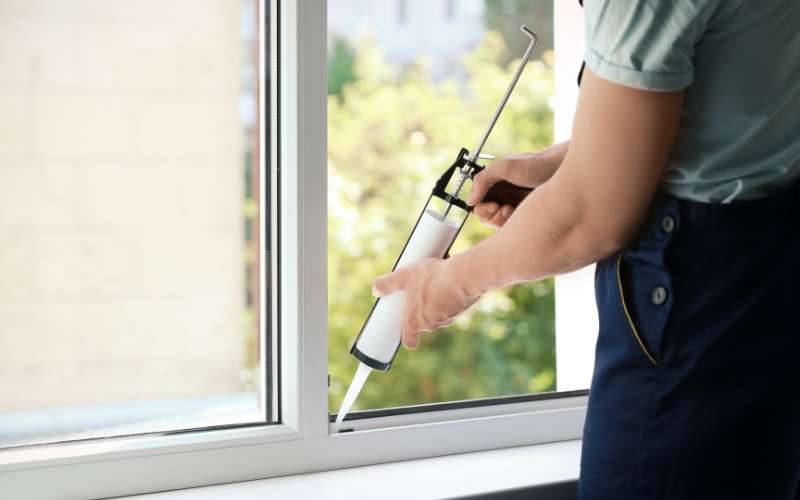Thinking about window replacement? Improving your home’s energy efficiency starts with understanding how the right window replacement can make a big difference. Old or inefficient windows can lead to higher energy bills and an uncomfortable home. By choosing energy-efficient windows, you can save money, enhance comfort, and reduce your carbon footprint. Are you ready to explore how new windows can transform your home’s energy performance.
Enhance Your Home’s Efficiency with the Right Window Replacement
When it comes to home improvements, replacing your windows can greatly improve energy efficiency. New windows provide better insulation, reduce energy loss, and create a more comfortable living environment. This section explores the key benefits and considerations for window replacement to enhance energy efficiency.
Benefits of Energy-Efficient Windows
Energy-efficient windows are designed to keep your home warm in winter and cool in summer. They minimize heat transfer, leading to reduced energy use. These windows often feature double or triple panes filled with insulating gas, which helps in maintaining the desired indoor temperature. By reducing the need for heating and cooling, you can see a significant drop in your energy bills.
Types of Energy-Efficient Windows
Choosing the right type of energy-efficient window depends on your needs and budget. Common options include double-glazed, triple-glazed, and Low-E (low-emissivity) glass windows. Double-glazed windows have two panes of glass with a layer of gas between them, providing excellent insulation. Triple-glazed windows add a third pane, enhancing energy efficiency further. Low-E windows have a special coating that reflects heat, keeping your home cooler in the summer and warmer in the winter.
Key Features to Look for in Energy-Efficient Windows
When shopping for energy-efficient windows, there are several key features to consider:
- Window Frames: Vinyl, fiberglass, and composite frames offer better insulation than traditional aluminum frames.
- Gas Fills: Argon or krypton gas fills between panes provide better insulation than regular air.
- Spacers: Insulating spacers between window panes help reduce heat transfer and prevent condensation.
- Low-E Coating: A special coating that reduces heat gain in summer and retains heat in winter.
These features contribute to the overall efficiency of windows, helping to lower your energy consumption and costs.
Factors to Consider Before Replacing Your Windows
Before replacing your windows, consider factors like climate, window style, and budget. If you live in a colder climate, windows with a higher U-value, which indicates better insulation, might be ideal. For warmer regions, windows with a lower Solar Heat Gain Coefficient (SHGC) help block excess heat from entering the home. Budget is also a crucial factor; while energy-efficient windows can be more expensive upfront, the long-term savings on energy bills often justify the cost.
Cost vs. Savings: Is It Worth It?
While the initial cost of energy-efficient windows can be high, the long-term savings on heating and cooling bills make them a smart investment. Studies show that homeowners can save up to 15% on energy bills after installing energy-efficient windows. Over time, these savings add up, making the cost of replacement worthwhile. Furthermore, some regions offer tax credits or rebates for upgrading to energy-efficient windows, providing additional financial incentives.
Professional Installation for Maximum Efficiency
For optimal energy efficiency, professional installation is crucial. Properly installed windows prevent drafts and leaks that can compromise energy savings. Hiring a certified installer ensures that the windows are fitted correctly, maximizing their efficiency. A professional can also provide advice on the best windows for your specific needs and climate.
How to Maintain Your Energy-Efficient Windows
Maintaining your windows is essential to ensure their efficiency over time. Regular cleaning, checking seals, and ensuring that the frames are in good condition can prolong their life and maintain their performance. Simple tasks like resealing gaps and replacing worn-out weatherstripping can prevent energy loss.
The Environmental Impact of Energy-Efficient Windows
Beyond personal savings, energy-efficient windows contribute to a greener planet. By reducing the energy needed to heat and cool your home, you reduce your carbon footprint. Choosing sustainable window materials and proper disposal of old windows also helps in minimizing environmental impact.
Ready to Upgrade Your Windows for Better Energy Efficiency.
Investing in energy-efficient window replacement is a smart move for both your wallet and the environment. By choosing the right windows and ensuring proper installation, you can significantly reduce your energy bills and increase comfort. Contact us today to learn more about how our window replacement services can help you achieve a more energy-efficient home!

